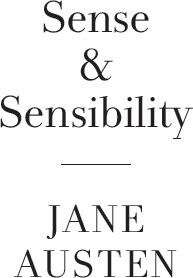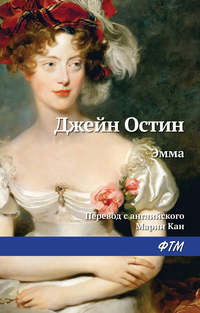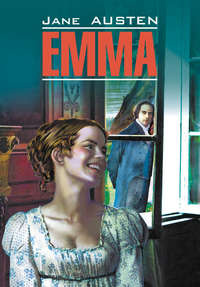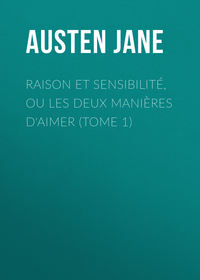
Полная версия
Sense & Sensibility: With an Introduction by Joanna Trollope



Contents
Title Page
An Introduction by Joanna Trollope
Volume I
Chapter 1
Chapter 2
Chapter 3
Chapter 4
Chapter 5
Chapter 6
Chapter 7
Chapter 8
Chapter 9
Chapter 10
Chapter 11
Chapter 12
Chapter 13
Chapter 14
Chapter 15
Chapter 16
Chapter 17
Chapter 18
Chapter 19
Chapter 20
Chapter 21
Chapter 22
Volume II
Chapter 23
Chapter 24
Chapter 25
Chapter 26
Chapter 27
Chapter 28
Chapter 29
Chapter 30
Chapter 31
Chapter 32
Chapter 33
Chapter 34
Chapter 35
Chapter 36
Volume III
Chapter 37
Chapter 38
Chapter 39
Chapter 40
Chapter 41
Chapter 42
Chapter 43
Chapter 44
Chapter 45
Chapter 46
Chapter 47
Chapter 48
Chapter 49
Chapter 50
Read on for Chapters 1 and 2 of Joanna Trollope’s modern re-telling of Sense & Sensibility
About the Author
Also by Jane Austen
Copyright
About the Publisher
Introduction
Sense & Sensibility is a very significant novel in the small but perfectly formed Jane Austen canon. It was, after all, her first full length novel and she had had it by her for no less than sixteen years by the time it finally made it into print.
She started it before she was twenty. It was an epistolary novel at that stage, entitled ‘Elinor and Marianne’, and it might even have been written on the writing box which her father noted buying in Basingstoke ten days before her nineteenth birthday in 1794, and which is now in the British Museum. But even then, in that early form, it was about – or at least half about – the eighteenth and early nineteenth-century pre-occupation with sensibility, that fashion for complete surrender to emotion, and to adoration of everything to do with the natural world.
Sensibility was, after all, the philosophical vogue right across Europe when Jane Austen was growing up – think of Goethe, or the early writings of Jean-Jacques Rousseau – but by the time she came to revise the novel a decade and a half after she had first read her outline of the story to her family, her view of the extremes of susceptibility to feeling and nature had been increasingly tempered by her appreciation of reason and restraint. To add to this prolonged creative start to her literary career, there also seems to have been a difficulty in persuading any publisher to take the completed novel on, to such an extent that when it did finally appear, in 1811, the publisher was one Thomas Egerton of the incongruously named Military Library in Whitehall, who stated firmly on the title page that the novel was ‘Printed for the Author’. It is thought that the publication cost her about £150, and that sales restored all but £10 of that sum to her. But the significant fact was, actually, in those sales. That first edition of 750 copies, in three volumes, sold right out.
The essence of the narrative is, like all her books, in the title. It concerns two sisters, Elinor and Marianne Dashwood, both good looking, although Jane Austen makes it plain: Marianne actually falls into the stunner category. They are accomplished, gently born, and uncomfortably poor, rather than glamorously penniless. When the book opens they have just lost their father, and are left with a sweet but slightly ditzy mother, a schoolroom-age sister, no home and no prospects. It is the early nineteenth century, so given their social status, marriage is the only career open to them, as well as being the only likelihood for subsistence. The novel charts how their approach to their future, and thus to men, is conditioned by each girl’s governing characteristic – sense for Elinor and sensibility for Marianne. It is an imperative, if they and their mother and sister are not to starve, for their heads to govern their choice of husband. But Marianne is only interested in heart: for her, reason and prudence represent a betrayal of soul and spirit. She is not, in her convictions, any distance at all from the modern belief in entitlement to complete emotional fulfilment.
This is only one element that makes this an extraordinarily modern book. Or perhaps it’s more accurate to describe it as timeless. The sisters themselves, their mildly and maddeningly impulsive mother, the generous and cheerfully obtuse distant cousin who offers them a roof, are all characters who translate immediately into the twenty-first century. As do the principal men, those crucial and possible husbands who range from the decent, patient suitor (Colonel Brandon), through the appealing but depressive misfit, (Edward Ferrars) to the distractingly handsome, unreliable, emotional pirate (John Willoughby). Add the social climbing, trend-fixated Steele sisters, the party goose (Charlotte Palmer) and the ferociously money driven sister-in-law (Fanny Dashwood) and you have a completely contemporary cast list.
You also have Jane Austen’s sharply observant eye for the nuances of class. The time and the society in which she lived was particularly ruthless in its demarcation between cradle gentility and the eager aspirations of those whose birth had not been quite so blue bloodedly fortunate. The Dashwoods may be short of money, but they are confidently rich in breeding. Willoughby, Colonel Brandon, and Sir John Middleton are all equally secure socially, but almost everyone else in the cast list doesn’t quite make their fearless grade, and Jane Austen has finely tuned fun with all of them – the Jennings family, the Steele sisters, and even, with the exception of Edward, the Ferrars clan. Vulgarity, and those who have absurd respect for class, is the target of her wit and mockery, to wonderful and familiar effect.
But running throughout the novel there is, also powerfully present, a steely preoccupation with money. Having money in 1811 wasn’t so much a luxury as a necessity, since not having enough to keep body and soul together didn’t result in mere poverty, it resulted in the horrors of destitution. While keenly understanding what real penury could mean, Jane Austen was also never under any illusion about the sex appeal granted by money, which was as compelling then as it is today. A man could be, was, and is forgiven a very great deal if he has enough money. Money was and is power. Without it, as Willoughby’s contemptible choices demonstrate, there is neither status nor choice. And not having money clashes absolutely and dramatically with Marianne’s conviction that heart is all that matters.
Marianne is, as a fictional character, a considerable achievement. Her fervent embracing of the Romantic creed could easily have made her too exasperating to sympathise with, just as Elinor’s persistent level-headedness could have been equally alienating in the opposite direction. But Marianne’s charm and true warmth of heart, and Elinor’s dry wit as well as occasional glimpses of her real emotional suffering, not only give both girls life, but also as much life today as when they were first created, over two hundred years ago. Take away the bonnets and the muslins, strip some of the formality from the dialogue, re-locate the action to modest modern houses, and Sense & Sensibility is, without question, a tale for our times.
Joanna Trollope
London 2013
1
The family of Dashwood had long been settled in Sussex. Their estate was large, and their residence was at Norland Park, in the centre of their property, where, for many generations, they had lived in so respectable a manner as to engage the general good opinion of their surrounding acquaintance. The late owner of this estate was a single man, who lived to a very advanced age, and who for many years of his life, had a constant companion and housekeeper in his sister. But her death, which happened ten years before his own, produced a great alteration in his home; for to supply her loss, he invited and received into his house the family of his nephew Mr Henry Dashwood, the legal inheritor of the Norland estate, and the person to whom he intended to bequeath it. In the society of his nephew and niece, and their children, the old gentleman’s days were comfortably spent. His attachment to them all increased. The constant attention of Mr and Mrs Henry Dashwood to his wishes, which proceeded not merely from interest, but from goodness of heart, gave him every degree of solid comfort which his age could receive; and the cheerfulness of the children added a relish to his existence.
By a former marriage, Mr Henry Dashwood had one son: by his present lady, three daughters. The son, a steady respectable young man, was amply provided for by the fortune of his mother, which had been large, and half of which devolved on him on his coming of age. By his own marriage, likewise, which happened soon afterwards, he added to his wealth. To him therefore the succession to the Norland estate was not so really important as to his sisters; for their fortune, independent of what might arise to them from their father’s inheriting that property, could be but small. Their mother had nothing, and their father only seven thousand pounds in his own disposal; for the remaining moiety of his first wife’s fortune was also secured to her child, and he had only a life interest in it.
The old gentleman died: his will was read, and like almost every other will, gave as much disappointment as pleasure. He was neither so unjust, nor so ungrateful, as to leave his estate from his nephew; – but he left it to him on such terms as destroyed half the value of the bequest. Mr Dashwood had wished for it more for the sake of his wife and daughters than for himself or his son; – but to his son, and his son’s son, a child of four years old, it was secured, in such a way, as to leave to himself no power of providing for those who were most dear to him, and who most needed a provision, by any charge on the estate, or by any sale of its valuable woods. The whole was tied up for the benefit of this child, who, in occasional visits with his father and mother at Norland, had so far gained on the affections of his uncle, by such attractions as are by no means unusual in children of two or three years old – an imperfect articulation, an earnest desire of having his own way, many cunning tricks, and a great deal of noise – as to outweigh all the value of all the attention which, for years, he had received from his niece and her daughters. He meant not to be unkind, however, and, as a mark of his affection for the three girls, he left them a thousand pounds apiece.
Mr Dashwood’s disappointment was, at first, severe; but his temper was cheerful and sanguine, and he might reasonably hope to live many years, and by living economically, lay by a considerable sum from the produce of an estate already large, and capable of almost immediate improvement. But the fortune, which had been so tardy in coming, was his only one twelvemonth. He survived his uncle no longer; and ten thousand pounds, including the late legacies, was all that remained for his widow and daughters.
His son was sent for as soon as his danger was known, and to him Mr Dashwood recommended, with all the strength and urgency which illness could command, the interest of his mother-in-law and sisters.
Mr John Dashwood had not the strong feelings of the rest of the family; but he was affected by a recommendation of such a nature at such a time, and he promised to do every thing in his power to make them comfortable. His father was rendered easy by such an assurance, and Mr John Dashwood had then leisure to consider how much there might prudently be in his power to do for them.
He was not an ill-disposed young man, unless to be rather cold hearted and rather selfish is to be ill-disposed: but he was, in general, well respected; for he conducted himself with propriety in the discharge of his ordinary duties. Had he married a more amiable woman, he might have been made still more respectable than he was: – he might even have been made amiable himself; for he was very young when he married, and very fond of his wife. But Mrs John Dashwood was a strong caricature of himself; – more narrow-minded and selfish.
When he gave his promise to his father, he meditated within himself to increase the fortunes of his sisters by the present of a thousand pounds apiece. He then really thought himself equal to it. The prospect of four thousand a year, in addition to his present income, besides the remaining half of his own mother’s fortune, warmed his heart, and made him feel capable of generosity. – ‘Yes, he would give them three thousand pounds: it would be liberal and handsome! It would be enough to make them completely easy. Three thousand pounds! he could spare so considerable a sum with little inconvenience.’ – He thought of it all day long, and for many days successively, and he did not repent.
No sooner was his father’s funeral over, than Mrs John Dashwood, without sending any notice of her intention to her mother-in-law, arrived with her child and their attendants. No one could dispute her right to come; the house was her husband’s from the moment of his father’s decease; but the indelicacy of her conduct was so much the greater, and to a woman in Mrs Dashwood’s situation, with only common feelings, must have been highly unpleasing; – but in her mind there was a sense of honour so keen, a generosity so romantic, that any offence of the kind, by whomsoever given or received, was to her a source of immoveable disgust. Mrs John Dashwood had never been a favourite with any of her husband’s family; but she had had no opportunity, till the present, of shewing them with how little attention to the comfort of other people she could act when occasion required it.
So acutely did Mrs Dashwood feel this ungracious behaviour, and so earnestly did she despise her daughter-in-law for it, that, on the arrival of the latter, she would have quitted the house for ever, had not the entreaty of her eldest girl induced her first to reflect on the propriety of going, and her own tender love for all her three children determined her afterwards to stay, and for their sakes avoid a breach with their brother.
Elinor, this eldest daughter whose advice was so effectual, possessed a strength of understanding, and coolness of judgement, which qualified her, though only nineteen, to be the counsellor of her mother, and enabled her frequently to counteract, to the advantage of them all, that eagerness of mind in Mrs Dashwood which must generally have led to imprudence. She had an excellent heart; – her disposition was affectionate, and her feelings were strong; but she knew how to govern them: it was a knowledge which her mother had yet to learn, and which one of her sisters had resolved never to be taught.
Marianne’s abilities were, in many respects, quite equal to Elinor’s. She was sensible and clever; but eager in every thing: her sorrows, her joys, could have no moderation. She was generous, amiable, interesting: she was everything but prudent. The resemblance between her and her mother was strikingly great.
Elinor saw, with concern, the excess of her sister’s sensibility; but by Mrs Dashwood it was valued and cherished. They encouraged each other now in the violence of their affliction. The agony of grief which overpowered them at first, was voluntarily renewed, was sought for, was created again and again. They gave themselves up wholly to their sorrow, seeking increase of wretchedness in every reflection that could afford it, and resolved against ever admitting consolation in future. Elinor, too, was deeply afflicted; but still she could struggle, she could exert herself. She could consult with her brother, could receive her sister-in-law on her arrival, and treat her with proper attention; and could strive to rouse her mother to similar exertion, and encourage her to similar forbearance.
Margaret, the other sister, was a good-humoured, well-disposed girl; but as she had already imbibed a good deal of Marianne’s romance, without having much of her sense, she did not, at thirteen, bid fair to equal her sisters at a more advanced period of life.
2
Mrs John Dashwood now installed herself mistress of Norland; and her mother and sisters-in-law were degraded to the condition of visitors. As such, however, they were treated by her with quiet civility; and by her husband with as much kindness as he could feel towards any body beyond himself, his wife, and their child. He really pressed them, with some earnestness, to consider Norland as their home; and, as no plan appeared so eligible to Mrs Dashwood as remaining there till she could accommodate herself with a house in the neighbourhood, his invitation was accepted.
A continuance in a place where every thing reminded her of former delight, was exactly what suited her mind. In seasons of cheerfulness, no temper could be more cheerful than hers, or possess, in a greater degree, that sanguine expectation of happiness which is happiness itself. But in sorrow she must be equally carried away by her fancy, and as far beyond consolation as in pleasure she was beyond alloy.
Mrs John Dashwood did not at all approve of what her husband intended to do for his sisters. To take three thousand pounds from the fortune of their dear little boy would be impoverishing him to the most dreadful degree. She begged him to think again on the subject. How could he answer it to himself to rob his child, and his only child too, of so large a sum? And what possible claim could the Miss Dashwoods, who were related to him only by half blood, which she considered as no relationship at all, have on his generosity to so large an amount? It was very well known that no affection was ever supposed to exist between the children of any man by different marriages; and why was he to ruin himself, and their poor little Harry, by giving away all his money to his half sisters?
‘It was my father’s last request to me,’ replied her husband, ‘that I should assist his widow and daughters.’
‘He did not know what he was talking of, I dare say; ten to one but he was light-headed at the time. Had he been in his right senses, he could not have thought of such a thing as begging you to give away half your fortune from your own child.’
‘He did not stipulate for any particular sum, my dear Fanny; he only requested me, in general terms, to assist them, and make their situation more comfortable than it was in his power to do. Perhaps it would have been as well if he had left it wholly to myself. He could hardly suppose I should neglect them. But as he required the promise, I could not do less than give it; at least I thought so at the time. The promise, therefore, was given, and must be performed. Something must be done for them whenever they leave Norland and settle in a new home.’
‘Well, then, let something be done for them; but that something need not be three thousand pounds. Consider,’ she added, ‘that when the money is once parted with, it never can return. Your sisters will marry, and it will be gone for ever. If, indeed, it could be restored to our poor little boy—’
‘Why, to be sure,’ said her husband, very gravely, ‘that would make a great difference. The time may come when Harry will regret that so large a sum was parted with. If he should have a numerous family, for instance, it would be a very convenient addition.’
‘To be sure it would.’
‘Perhaps, then, it would be better for all parties, if the sum were diminished one half. – Five hundred pounds would be a prodigious increase to their fortunes!’
‘Oh! beyond anything great! What brother on earth would do half so much for his sisters, even if really his sisters! And as it is – only half blood! – But you have such a generous spirit!’
‘I would not wish to do any thing mean,’ he replied. ‘One had rather, on such occasions, do too much than too little. No one, at least, can think I have not done enough for them: even themselves, they can hardly expect more.’
‘There is no knowing what they may expect,’ said the lady, ‘but we are not to think of their expectations: the question is, what you can afford to do.’
‘Certainly – and I think I may afford to give them five hundred pounds apiece. As it is, without any addition of mine, they will each have above three thousand pounds on their mother’s death – a very comfortable fortune for any young woman.’
‘To be sure it is; and, indeed, it strikes me that they can want no addition at all. They will have ten thousand pounds divided amongst them. If they marry, they will be sure of doing well, and if they do not, they may all live very comfortably together on the interest of ten thousand pounds.’
‘That is very true, and, therefore, I do not know whether, upon the whole, it would not be more advisable to do something for their mother while she lives, rather than for them – something of the annuity kind I mean. – My sisters would feel the good effects of it as well as herself. A hundred a year would make them all perfectly comfortable.’
His wife hesitated a little, however, in giving her consent to this plan.
‘To be sure,’ said she, ‘it is better than parting with fifteen hundred pounds at once. But, then, if Mrs Dashwood should live fifteen years we shall be completely taken in.’
‘Fifteen years! my dear Fanny; her life cannot be worth half that purchase.’
‘Certainly not; but if you observe, people always live for ever when there is an annuity to be paid them; and she is very stout and healthy, and hardly forty. An annuity is a very serious business; it comes over and over every year, and there is no getting rid of it. You are not aware of what you are doing. I have known a great deal of the trouble of annuities; for my mother was clogged with the payment of three to old superannuated servants by my father’s will, and it is amazing how disagreeable she found it. Twice every year these annuities were to be paid; and then there was the trouble of getting it to them; and then one of them was said to have died, and afterwards it turned out to be no such thing. My mother was quite sick of it. Her income was not her own, she said, with such perpetual claims on it; and it was the more unkind in my father, because, otherwise, the money would have been entirely at my mother’s disposal, without any restriction whatever. It has given me such an abhorrence of annuities, that I am sure I would not pin myself down to the payment of one for all the world.’
‘It is certainly an unpleasant thing,’ replied Mr Dashwood, ‘to have those kinds of yearly drains on one’s income. One’s fortune, as your mother justly says, is not one’s own. To be tied down to the regular payment of such a sum, on every rent day, is by no means desirable: it takes away one’s independence.’
‘Undoubtedly; and after all you have no thanks for it. They think themselves secure, you do no more than what is expected, and it raises no gratitude at all. If I were you, whatever I did should be done at my own discretion entirely. I would not bind myself to allow them any thing yearly. It may be very inconvenient some years to spare a hundred, or even fifty pounds from our own expenses.’








![Love and Freindship [sic]](/covers_200/25019987.jpg)
